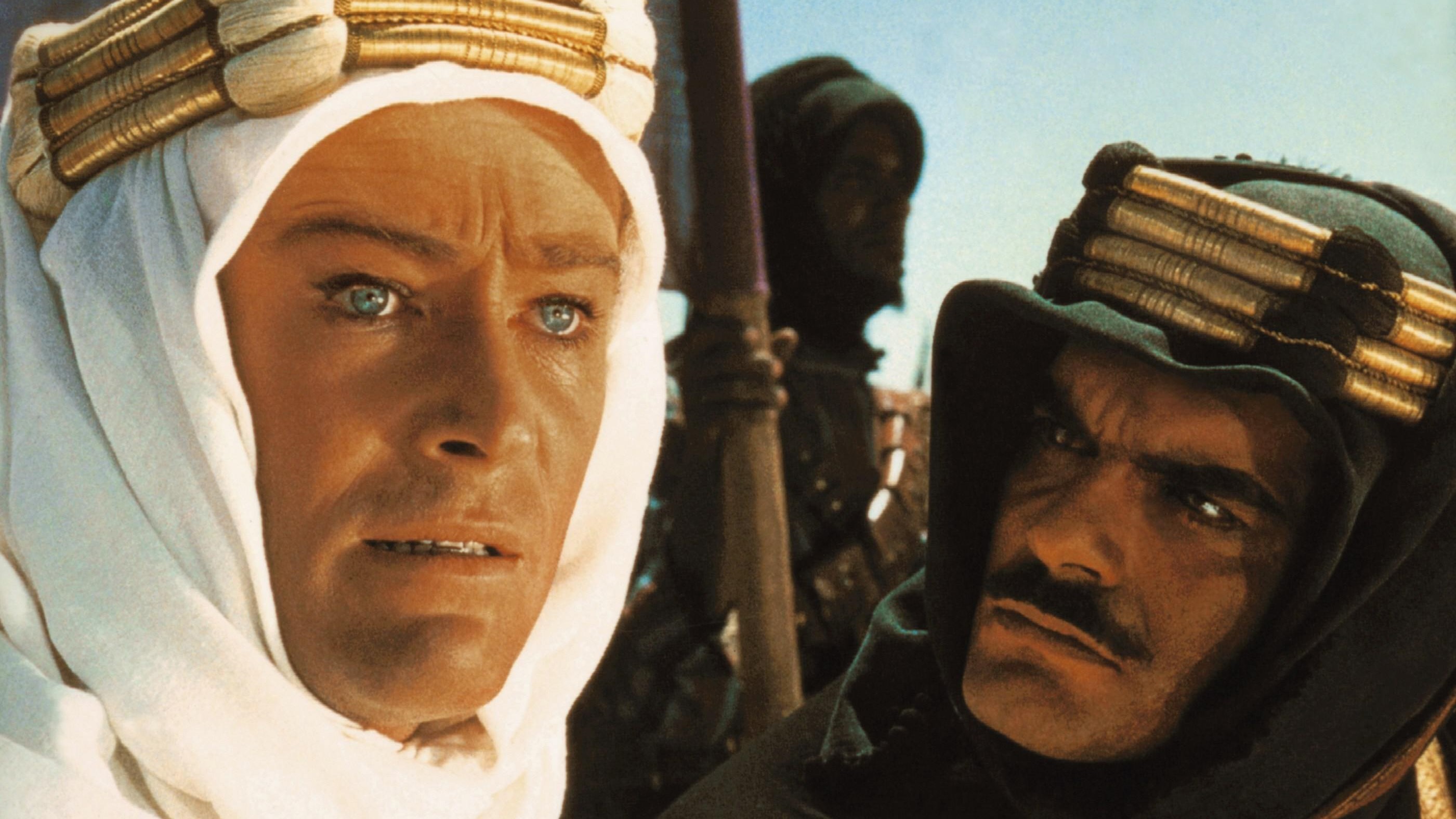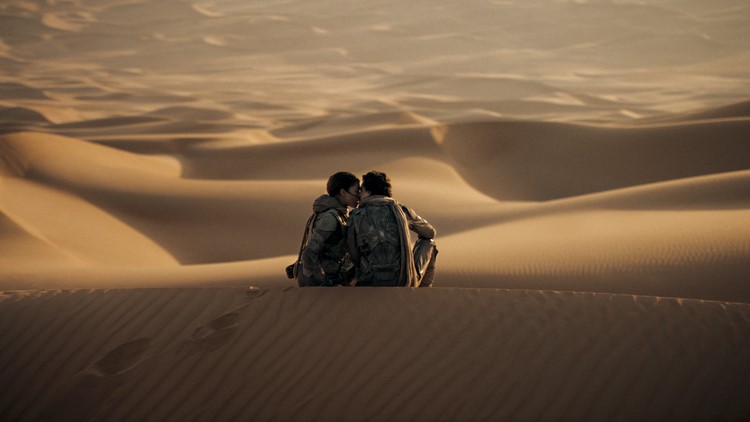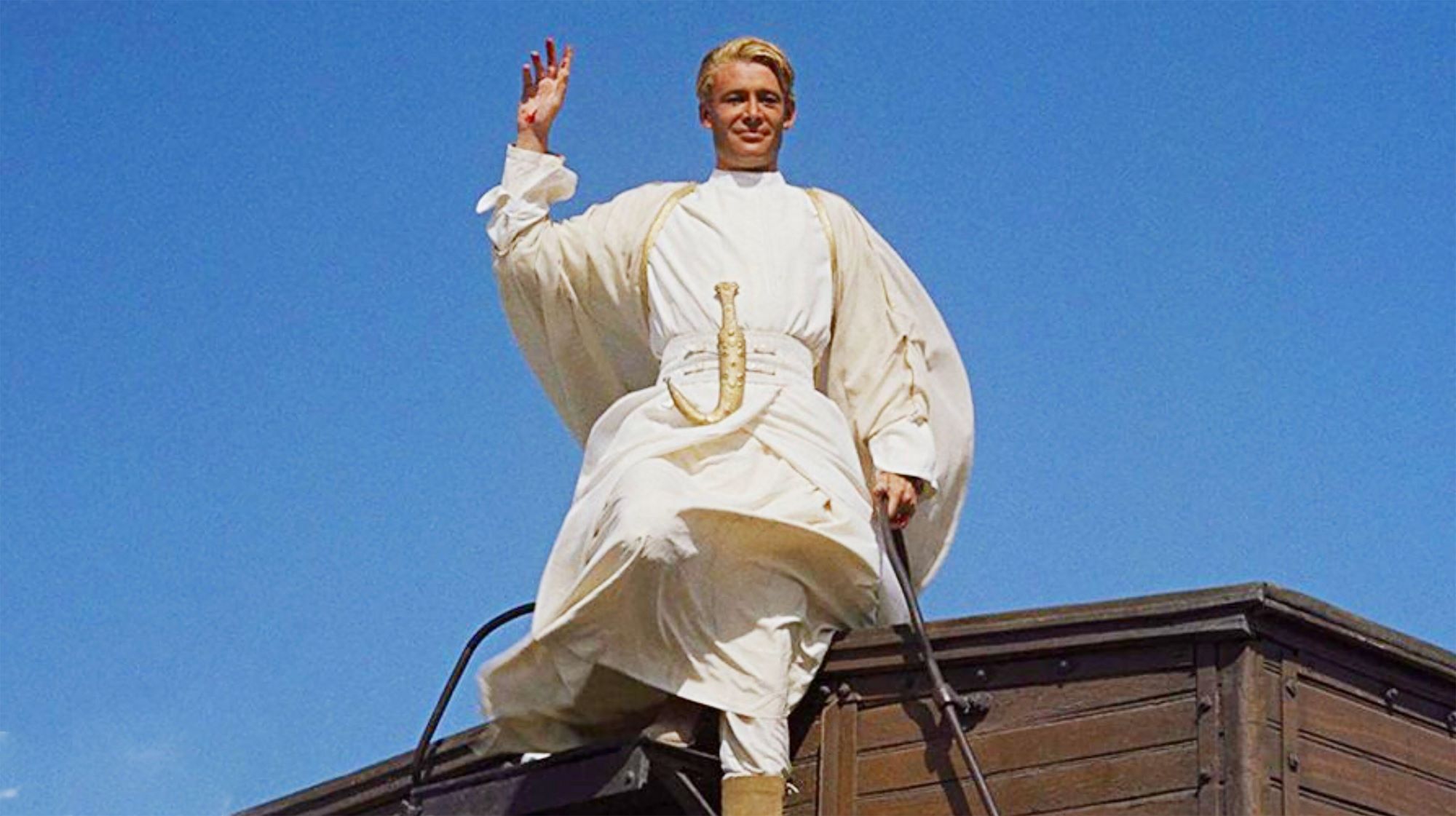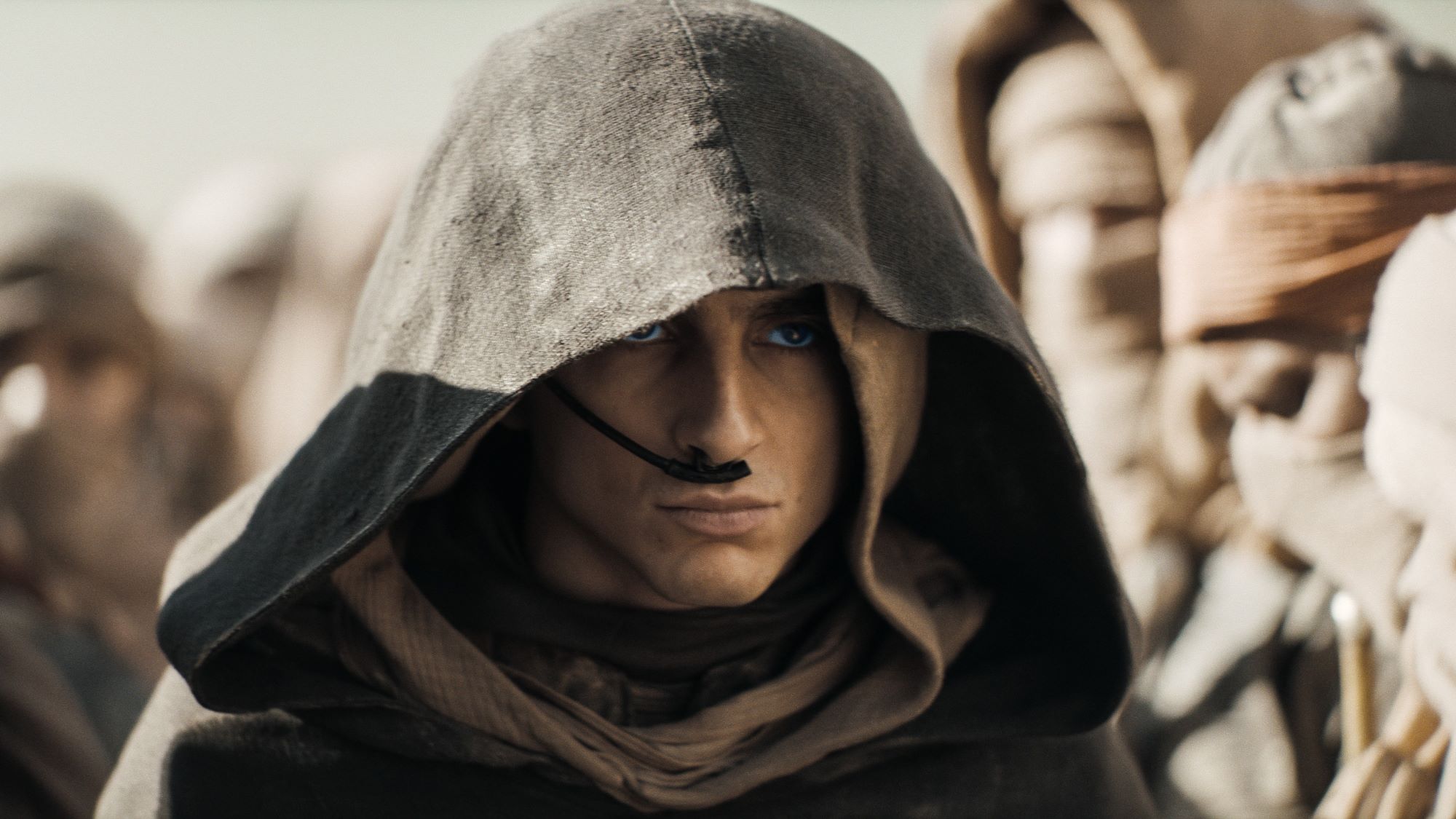
Movie fans are loving Dune: Part Two right now. The epic sci-fi movie is "Certified Fresh" on Rotten Tomatoes and made more than $180 million dollars in its opening weekend worldwide. Seeing the movie on the big screen (and if you're lucky enough on an IMAX screen) is an incredible experience that will send you out of the theater on a cinematic high.
If you want to continue that, we have just the movie to suggest to keep that feeling going: Lawrence of Arabia.
While there are other fun options to watch after Dune: Part Two — David Lynch's take on Dune is streaming for one example— there may not be a movie that hits on so many similar themes and feelings than the Best Picture-winner released all the way back in 1962.
In case you're not familiar with Lawrence of Arabia, the movie was directed by legendary filmmaker David Lean and starred Peter O'Toole, in his first leading role, and Omar Sharif. The movie was based on the true story of T.E. Lawrence (O'Toole), an English officer in World War One who united different Arab tribes to help in the fight against the Turks. Lawrence of Arabia won seven total Oscars, including Best Picture and Best Director. The American Film Institute ranks it as the seventh best movie of all time, the British Film Institute has it at No. 3 and it is included in Sight & Sounds most recent 250 greatest movies of all time list.
But beyond its pedigree, there are a lot of connecting threads between Lawrence of Arabia and Dune: Part Two that make them fantastic companion pieces. Though admittedly a long one; with Lawrence of Arabia's three hour 38 minute runtime and Dune: Part Two clocking in at two hours and 46 minutes, you need seven-plus hours to knock both movies out (longer if you wanted to add 2021's Dune into the mix).
It's an experience well worth it though. Let me explain why below, but be warned, I'm going to go into SPOILERS for both Dune: Part II and Lawrence of Arabia.
The scope of Dune: Part Two and Lawrence of Arabia

One of the biggest things, literally, that Dune: Part Two and Lawrence of Arabia have in common is the massive scope each story tells. While Dune: Part Two is a galaxy-spanning sci-fi story set in the distant future, Lawrence of Arabia depicts the deserts of Arabia during World War One as magnificently as the sands of Arrakis.
Helping with that is both movies were made to be seen in the biggest format possible. Dune: Part Two is the latest example of how incredible a viewing experience IMAX can be. While IMAX wasn't around for Lawrence of Arabia, it was shot to be shown on the largest format of the time, Super Panavision 70, a 70mm film format that was still only three years old in 1962; Dune: Part Two is also being shown in 70mm in selection locations, for another connection between the movies.
Beyond just how they were made and shot, their stories are similarly grand. They both have war as part of their central conflict, attempts to give power to groups previously overlooked by others, massive casts and impressive battle sequences — despite the gap in what could be put on screen, Lawrence's attack on Aqaba and Dune: Part Two's battle of Arrakeen are both thrilling to watch.
For all the scope of these movies, what truly makes them work though are their main characters: T.E. Lawrence and Paul Atreides (Timotheé Chalamet).
Paul and Lawrence's journeys

Despite Lawrence and Paul starting their stories in two very different places — Lawrence is a low-ranking British officer desperate for adventure, while Paul is the son of a Duke, a little reluctant at what the future may hold for him — they both become inspirational figures to an oppressed group, embracing their ways and fighting alongside them against a powerful foe.
For Lawrence, he is given the assignment to work with Arab forces in the hopes of turning the tide against Turk forces. However, he sees greater potential in these allies than his superiors. With the help of Sherif Ali (Sharif), Lawrence risks his life to cross a brutal desert and attack the Turk stronghold of Aqaba. Along the way, he enthusiastically learns about the Arab culture and practices, though he fights against their idea that things are "written," believing he has the power to make his own destiny. It is this confidence that endears Lawrence to his compatriots, allowing him to become an almost messianic figure for them, something he embraces.
Paul finds himself in a similar position in Dune: Part Two. In 2021's Dune, he showed an interest in the culture of the Fremen, the native people of Arrakis, but in the sequel he must join them after his family's forces were almost entirely wiped out by the villainous Harkonnens. Paul's eagerness to learn the ways of the Fremen and get revenge against the Harkonnens earns the Fremen's respect, however there are different perceptions of Paul. Chani (Zendaya) is among those that see Paul as a skilled and charismatic leader, but others like Stilgar (Javier Bardem) believe he is the prophesied messiah. Either way, Paul, like Lawrence, becomes an influential leader to the Fremen.
The key difference that makes these characters fascinating is how they feel about their roles. As mentioned, Lawrence embraces his position, to a fault as we'll discuss below. Paul, meanwhile, is reluctant to take the mantle of the Fremen's savior, fearing what could come as a result of it.
Tragic endings

Both the Dune: Part Two ending and Lawrence of Arabia ending both come to what is truly tragic results for Paul and Lawrence.
While Paul does defeat the Harkonnens, avenging his father's death, and becomes the new emperor of the galaxy, the cost to achieve it was great. Paul was forced to travel to the southern part of Arrakis and its trove of fundamentalist warriors. He feared if he did it would set off the chain of events that would lead to death and suffering he had seen in his visions. Once the decision is made though, Paul does not fight it, taking the steps to become the prophesied leader of the Fremen.
As a result, Paul loses Chani, who believes he has changed from the man she fell in love with and, to add insult to injury, makes an arranged marriage with Princess Irulan (Florence Pugh) to legitimize him as emperor right in front of her. However, that doesn't fully work, as the other great houses of the galaxy refuse to accept him, setting up a war that will cause greater devastation.
On the flip side, Lawrence comes to realize that he is not a messiah. Eventually, his influence fades with some of the Arabs and his forces dwindle. Though he still has confidence he can achieve great feats even with less men. However, when he is captured and tortured during a mission, his confidence is shaken.
Another chance arrives when he is called to lead Arab forces in a final campaign. Lawrence has his own agenda though — he wants to use his influence to unite the various Arab tribes into their own nation, so they can stand on their own. But he fails again, unable to help the tribes forgo their differences, ensuring that they will still be subject to English influence. For all his work and belief in writing your own destiny, Lawrence was not able to create a unified Arab world, something his superiors never believed could be done.
So in the end, while both Paul and Lawrence were victorious in the wars they were fighting, personally they failed to achieve their initial goals, and the ripples of their actions did (in the case of Lawrence) and could (for Paul) have disastrous impacts down the line.
The best way to understand how well these two movies work together though is to watch them. As of right now, you can only watch Dune: Part Two in movie theaters, while Lawrence of Arabia is available through digital on-demand in the US and is streaming on Netflix in the UK.







